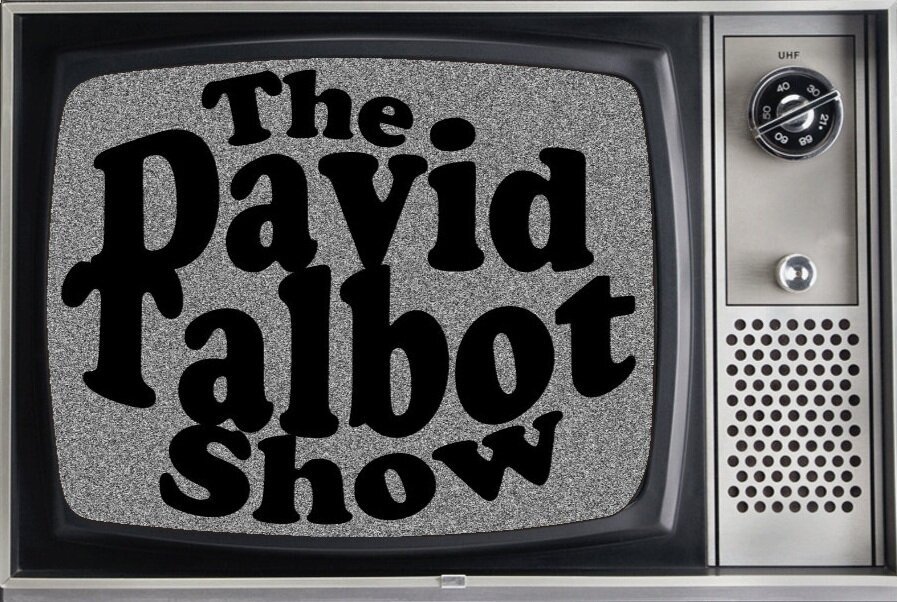My Christopher Hitchens Problem
I knew and liked Christopher Hitchens before I disliked him. I met him in the early 1980s, not long after he had relocated to the United States from England to write for The Nation. I admired his wit, humor and intelligence. But mostly I admired his understanding of political journalism as a blood sport. In those years, only Brits seemed to know how to practice the savage trade — American journalists, by comparison, were earnest and dull. So as a young Mother Jones editor, I eagerly signed up Chris to take down Tom Wolfe — the prominent New Journalist who had become a dandy of the Reagan Right — and he scored a direct hit with his scathing cover story, “A Wolfe in Chic Clothing,” highlighted by a memorable Robert Grossman cover illustration of the white-suited scribe with a fork stuck in his chest. (Hitchens wielded his pen on the unsuspecting Wolfe after they dined together.) I think the Mother Jones skewering of Wolfe was Hitchens’s first cover story in an American glossy.
Like many fellow journalists, I drank and supped with Hitch, always finding him a charming companion. I was introduced to his first wife, Eleni. We feted him at Mother Jones soirees and went to dinner parties together. When I launched Salon in the dotcom ‘90s, I again recruited Chris as an occasional essayist. I remember one watering hole excursion in San Francisco before we were to be interviewed on radio, when Hitchens downed one drink after another at a North Beach bar. I struggled to keep up with him, but I lost count of the glasses he drained. And still, he never slurred his words, never stopped his conversational stream — wicked, bilious, uproarious. How he later managed to walk into a radio studio and keep up his smooth patter I will never be able to fathom.
Hitch, a bisexual, told me leaving Barbara Ehrenreich’s house in Washington DC one night that I was “the most beautiful man in America.” But I’m sure he told that to all the reasonably handsome creatures who crossed his path. He once said that he was doomed to be only with women as he aged and grew fleshy because the fairer sex had lower standards than men.
So I was one of many who knew and was captivated by Christopher Hitchens. But that was then. As the years went by, his writing was just as gleaming and cutting, but his thinking grew, well, sodden. Twenty years after he sliced Tom Wolfe to ribbons for me, Hitchens too joined the ranks of the neocons, exuberantly and shamelessly promoting the 2003 invasion of Iraq. He’d always loved playing the bad boy, pulling the nose of Mother Teresa and even sticking a thumb in God’s eye. But this time, Hitchens’s antics were more serious — he became a propagandist for a criminal war. And in drunken middle age, he rechristened himself as a Colonel Blimp — like his naval officer father — calling on the imperial forces of the U.S. and U.K. to give a good thumping to the desert wogs in Iraq and anywhere else in the Middle East he thought should be straightened out.
Hitchens, already in free fall from the idealistic socialism of his youth, took the final dive after 9/11. The assault on America had “exhilarated” him, he crowed. He now saw the clear lines forming in the “battle between everything I love and hate.” His reductionist views of Muslim countries and cultures would’ve appalled his hero, George Orwell.
Hitchens reportedly died bravely in 2011 after a struggle with cancer, refusing a death-bed conversion from atheism. He would never sell out as a God worshipper, even in extremis. But his political conversion was too easy.
And now ten years after his messy life and career come the biographers — and the gatekeepers. His second wife and widow Carol Blue-Hitchens and his good friend and fellow literary executor Steve Wasserman seek to protect Hitchens’s flame — and they have circulated a letter to “Family, Fiends, Colleagues, Fellow Scribblers, Brothers & Sisters, Comrades” urging us to withhold all cooperation with “self-appointed, would-be biographer” Stephen Phillips, who is writing a book about Hitchens for W.W. Norton.
I count Wasserman as a friend and “comrade.” But this dismal effort at literary prior restraint is beneath him — and certainly not in the spirit of Chris Hitchens himself, who stood for fearless and acerbic prose, even when he himself was woefully wrong. Blue-Hitchens and Wasserman have been taken to task for their “preemptive censorship” — as they should be — by biographer David Nasaw, writing in the pages of Hitchens’s old left-wing platform, The Nation.
But my problem with the Hitchens estate goes far beyond the well-meaning but wrong-headed effort to protect his posthumous reputation. My problem is with the man himself — or rather the man he became. Swanning around with the likes of Paul Wolfowtiz, David Frum and Bill Kristol, becoming a fellow at Stanford’s right-wing Hoover Institution. The young Hitchens, the one I admired and published, would’ve sneered at this older version of himself. In fact, I would’ve hired him to do a take-down on the bibulous, saber-rattling windbag that he became.

